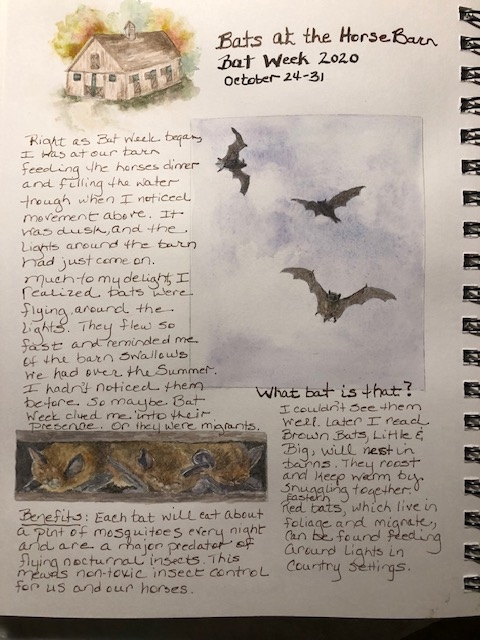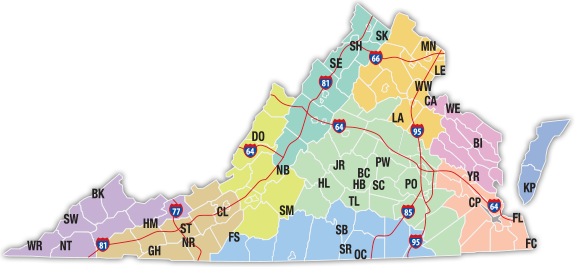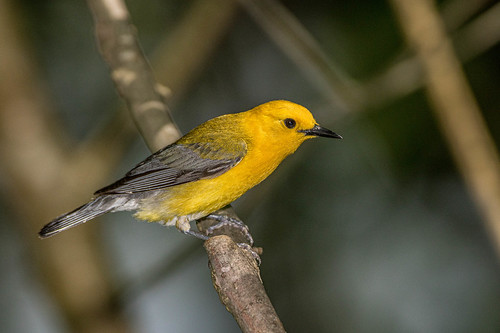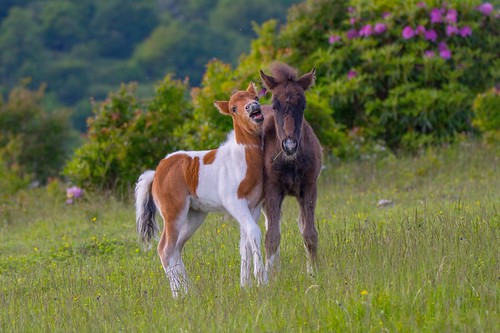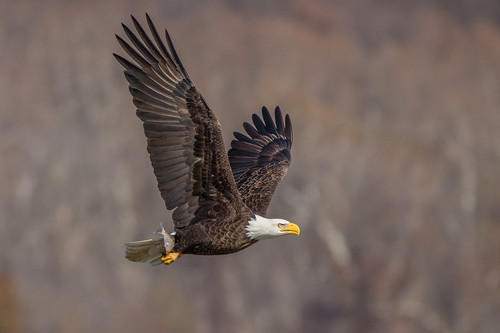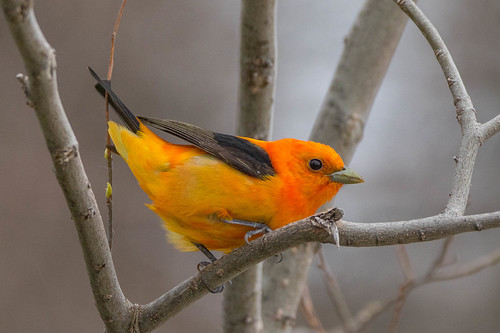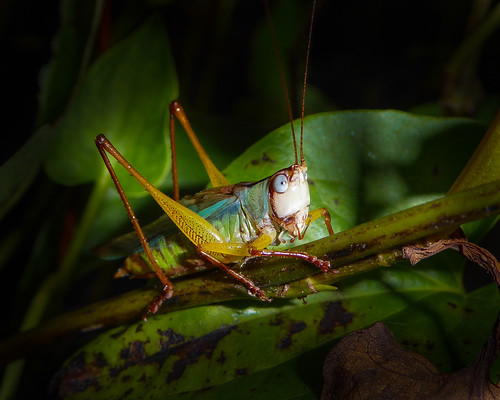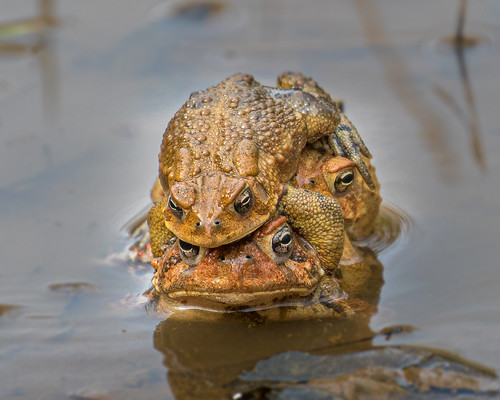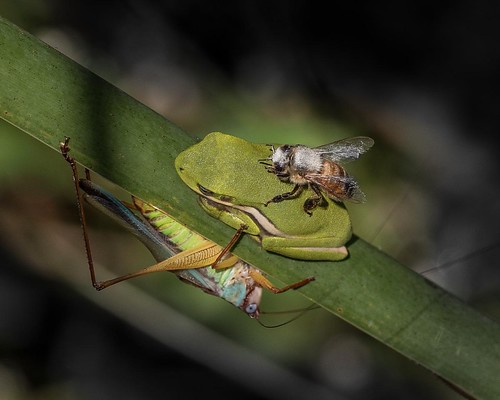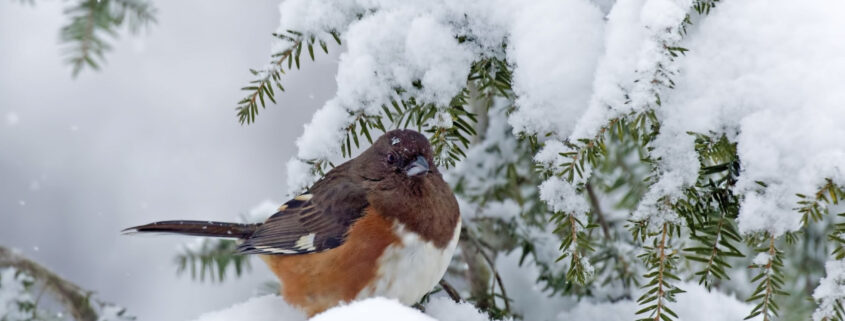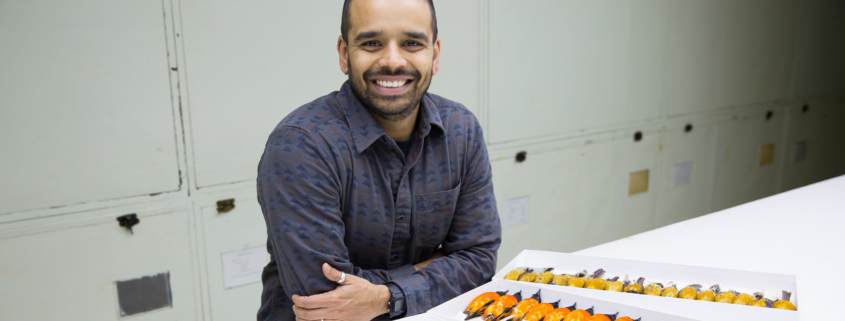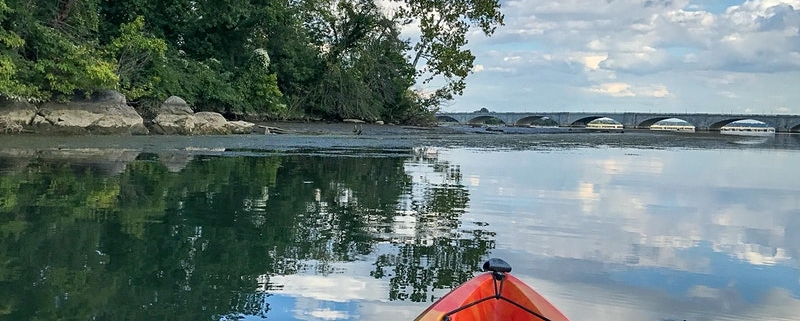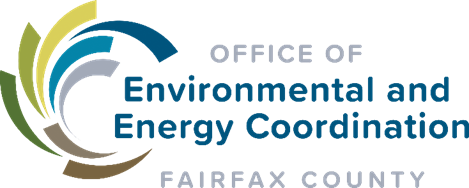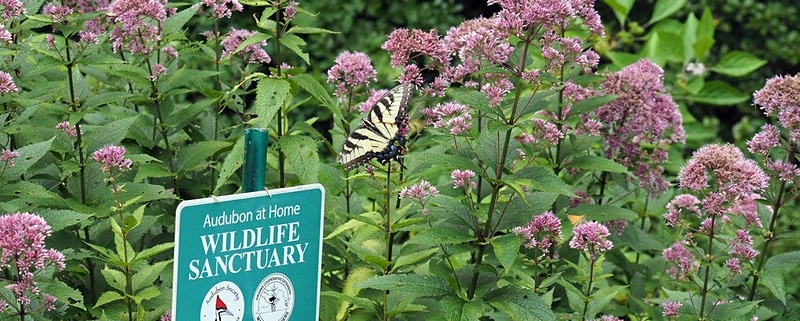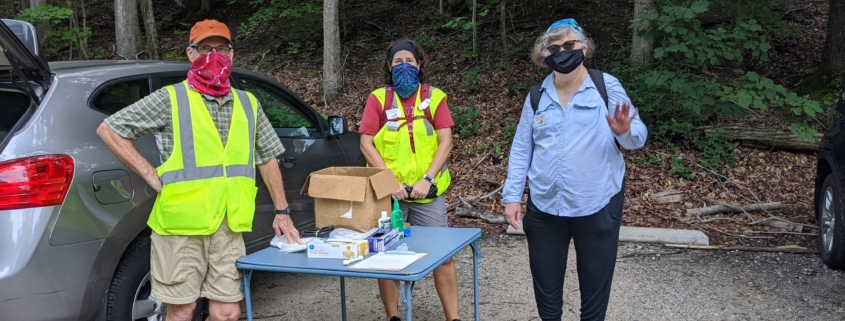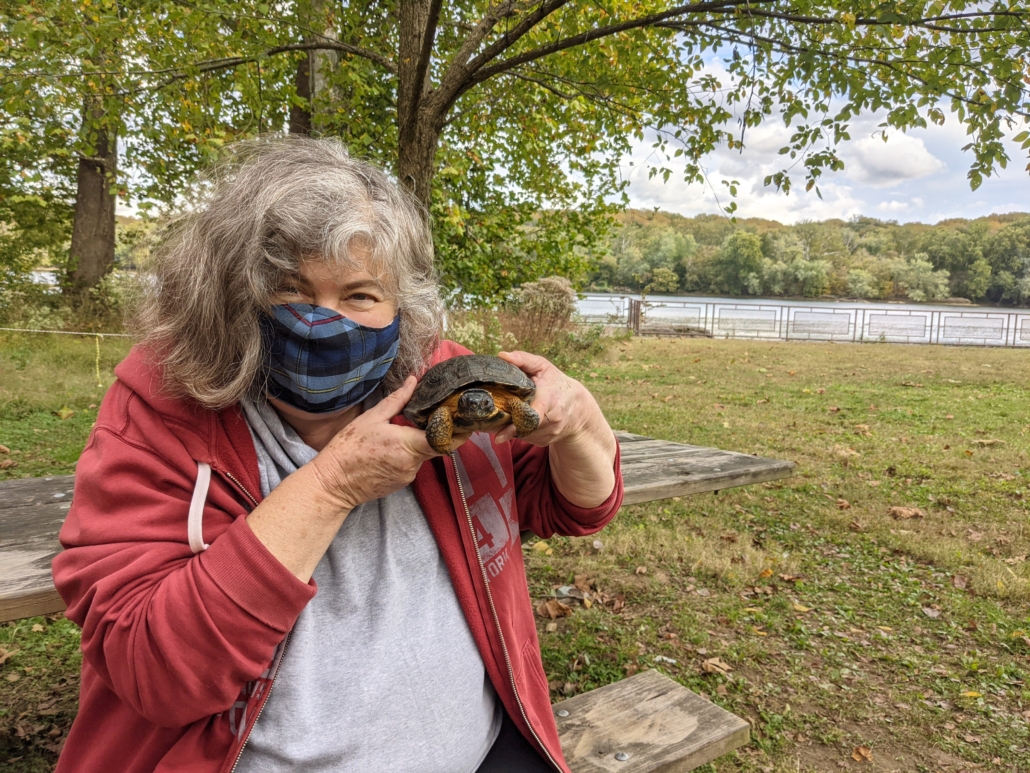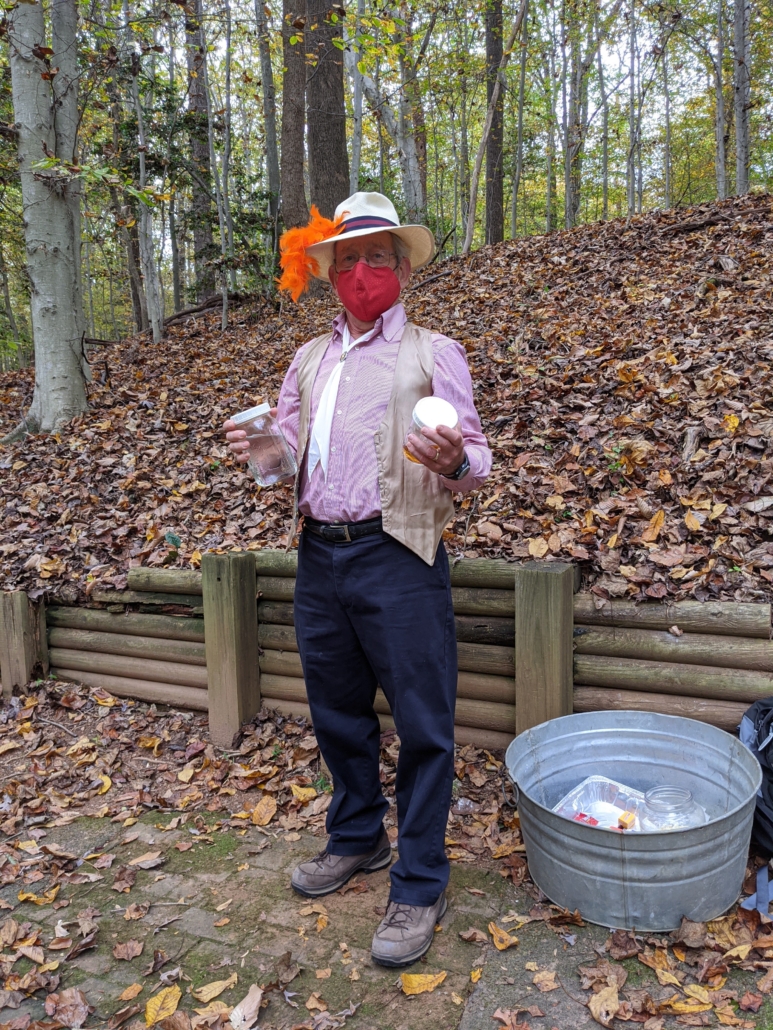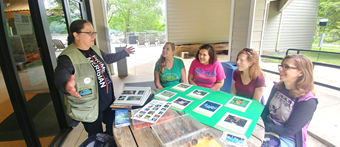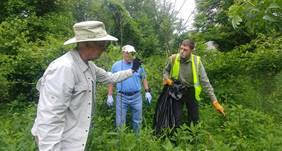Bringing Dragonflies to Your Yard
Article by Plant NOVA Natives staff
For anyone who enjoys watching birds at a feeder, there is another pastime available that is just as entertaining but less well known: watching the dragonflies and damselflies patrolling your yard. There are over eighty species in Northern Virginia, a few of which are happy to frequent our gardens if we offer the right conditions. Some are hefty and like to land on walkways, making them hard to miss. Others, including most damselflies, are so wispy as to escape our notice if we aren’t paying attention.
Most dragonflies lay their eggs in fresh water ponds and streams, where they hatch and live as little aquatic predators for years before emerging as adults. We can provide a breeding area in our yards by installing a pond, which need not be large and can be a do-it-yourself project. Frogs and salamanders will make it their home as well, and the sound and sight of moving water transforms any garden into a place to sit and watch the whole carnival.
All these pond inhabitants require more than just water. Dead leaves and algae are the basis for a pond’s ecosystem, as the tiny organisms that use them for shelter and food are themselves eaten by larger ones. It is therefore important to treat a pond not as a chlorinated fountain but as a living thing, avoiding excess cleaning and protecting it from insecticides or other chemicals.
Once dragonflies become adults, they spend their time catching large numbers of mosquitoes and other insects and looking for opportunities to mate. The males will find a perch near the water and guard against rivals, waiting for a female to approach. If you are lucky, you may see a female ovipositing, bouncing up and down as she dips the tip of her abdomen into the water to lay her eggs.
Even without a pond, your yard is likely to be visited by dragonflies if it is providing other natural habitat, because that is where there will be a balance of prey and predatory insects. Besides avoiding chemicals, the key to building that kind of habitat is to plant a lot of native species, because most plant-eating insects can only eat the plants with which they evolved. There are hundreds of species of garden-worthy native plants available, including a couple dozen species of native pond plants.
Here is a three minute video about the ups and downs of owning a fancy ornamental pond. The gardener who made that video has since learned that disruptions to the pond critters can be minimized by only cleaning the pond once a year in mid winter, and by leaving most of the algae and leaves in place. Information about native pond plants and how to care for a pond as habitat can be found on the pond page of the Plant NOVA Natives website. It is very fun to learn to recognize the various species. A great resource for that is Bob Blakney’s book Northern Virginia Dragonflies and Damselflies.




